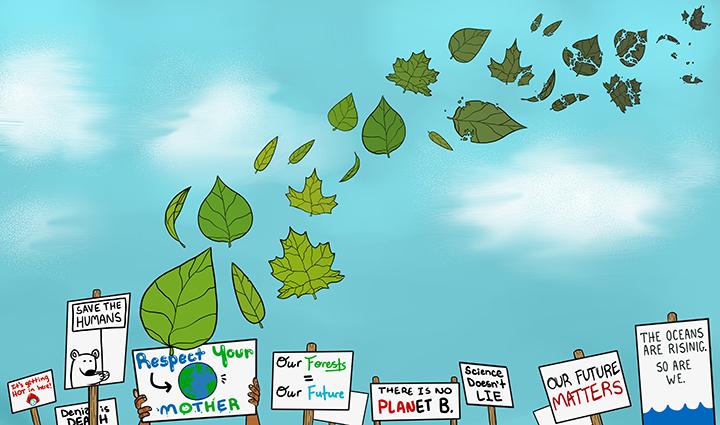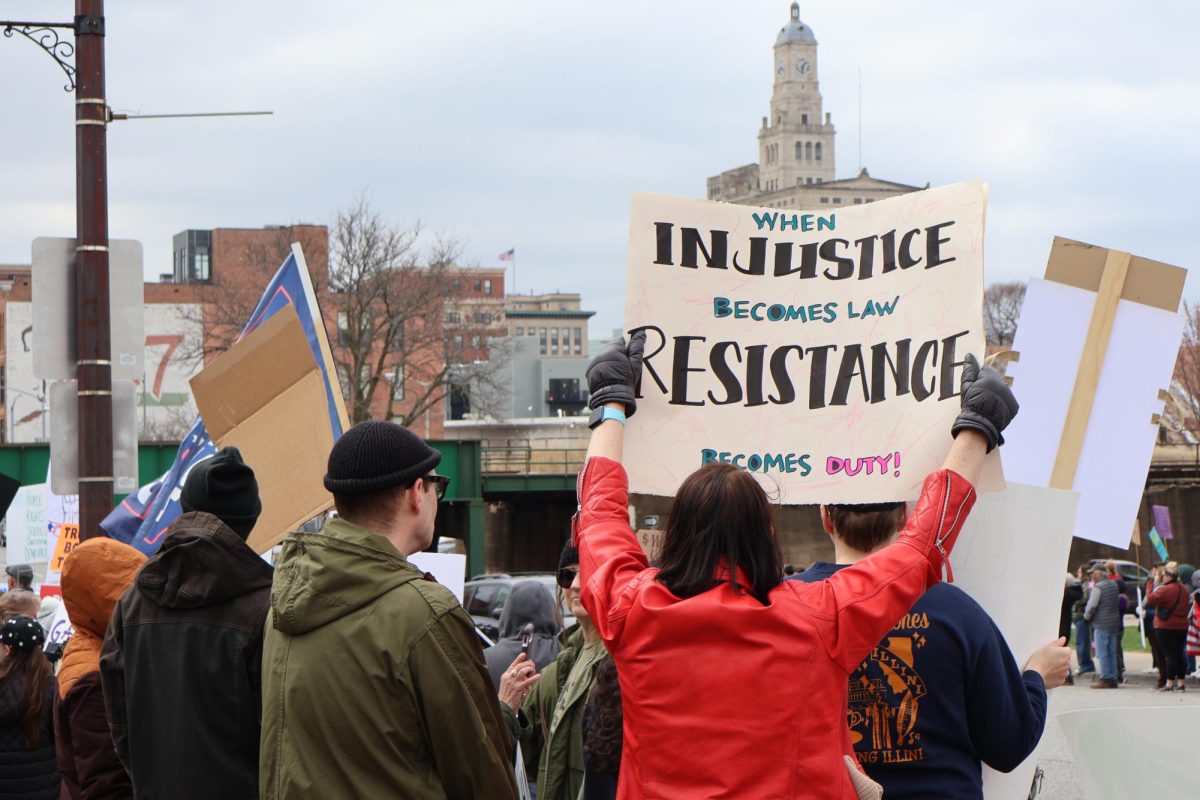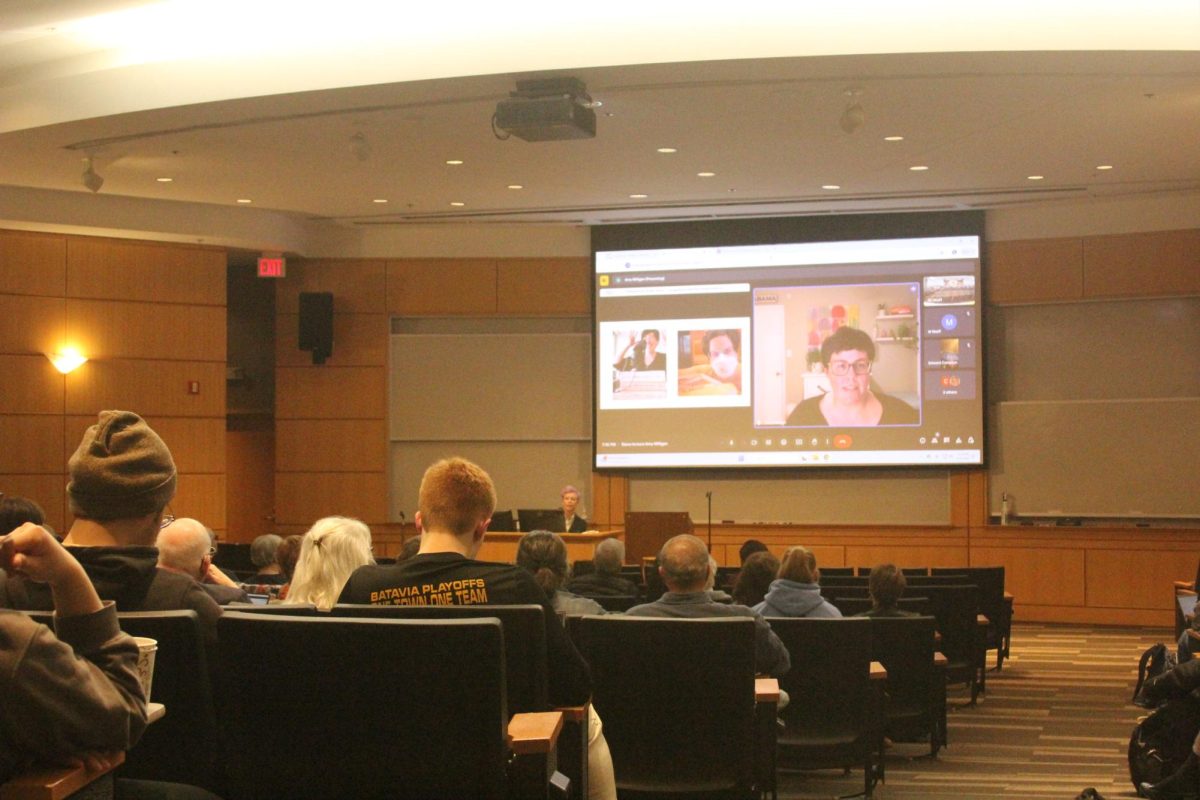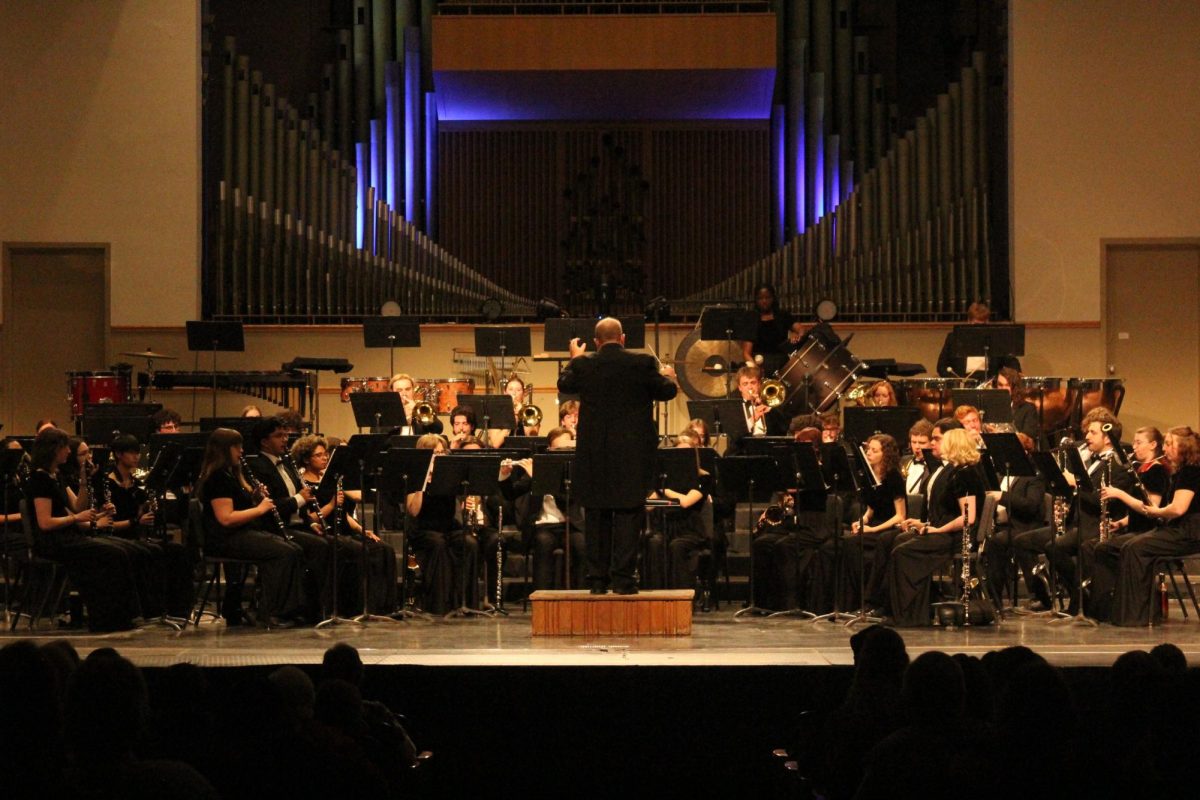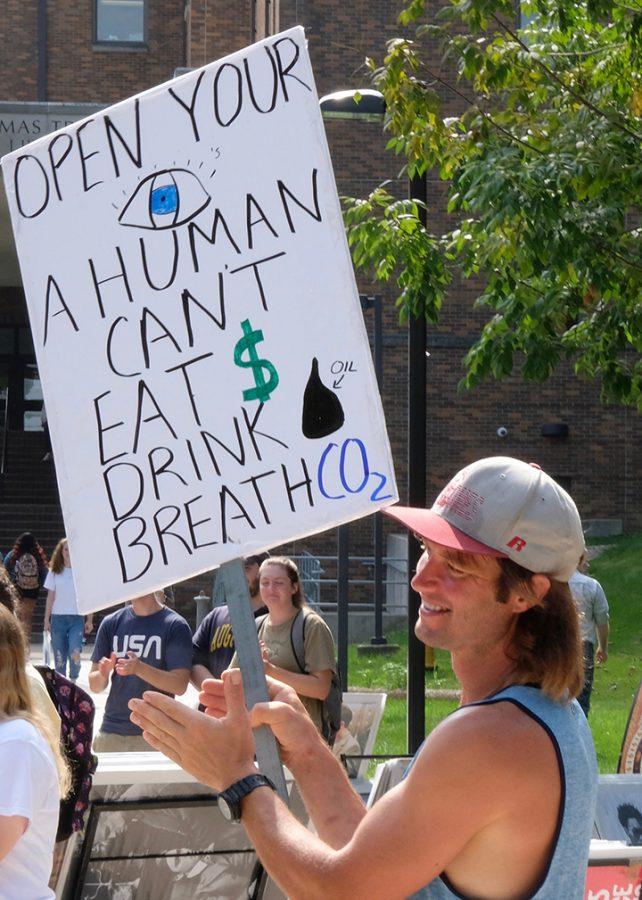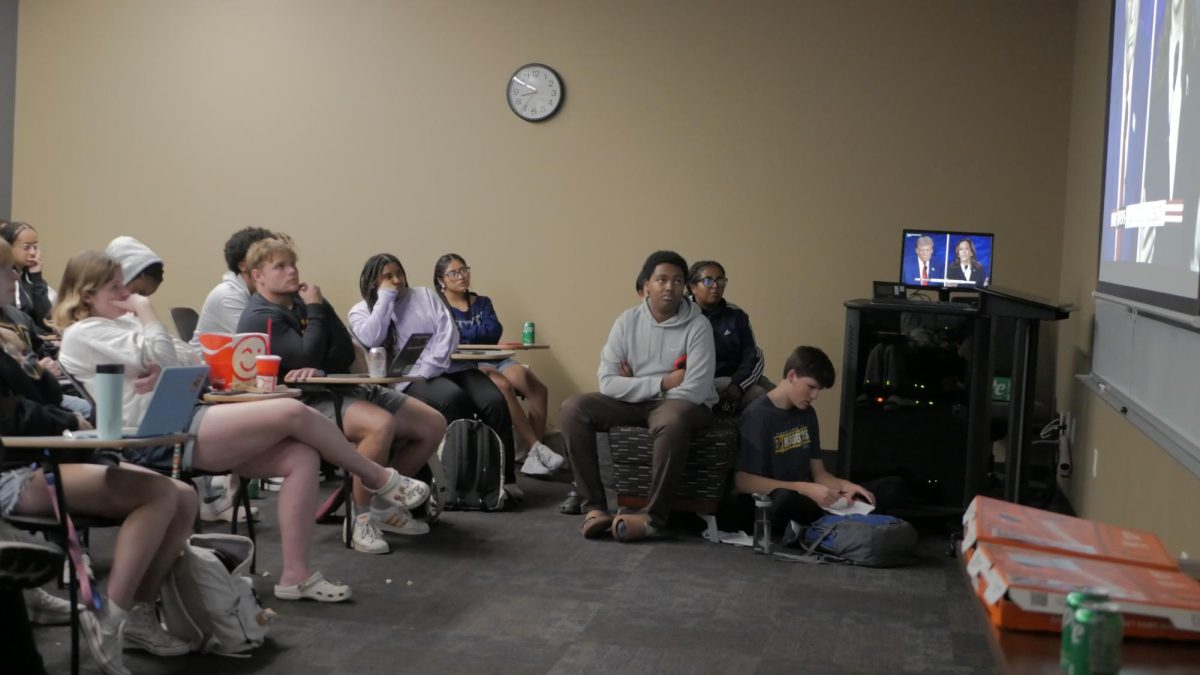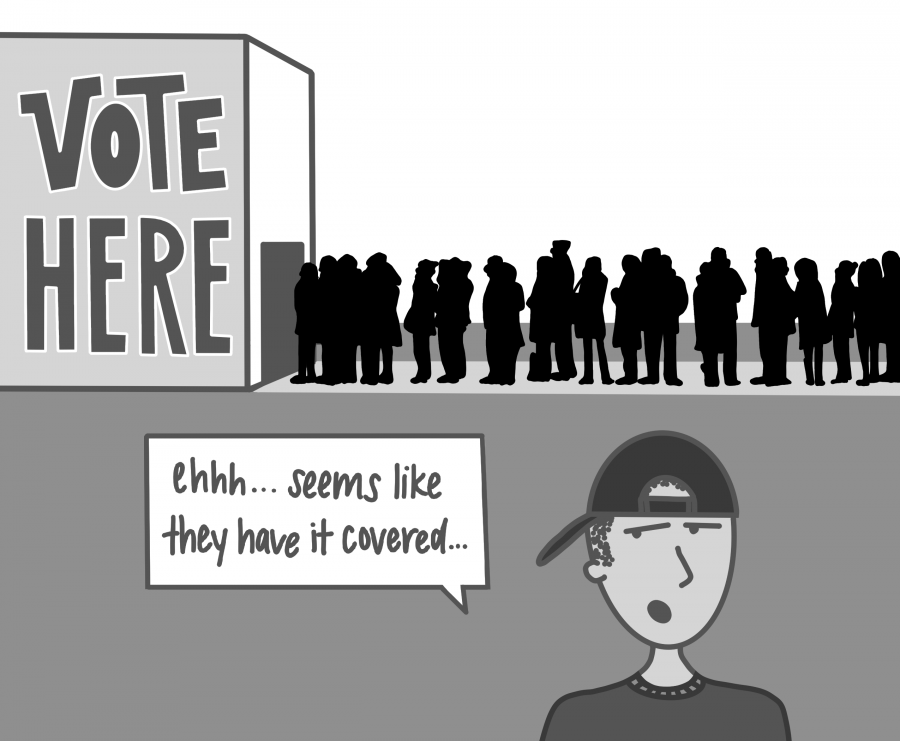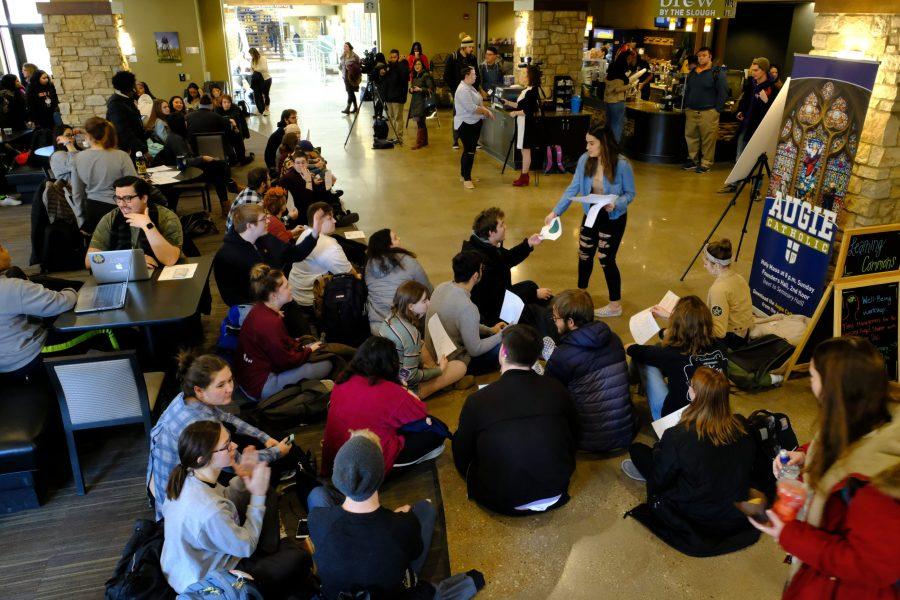Augustana students have a powerful voice on subjects they feel need to be addressed. By forming a student-led “climate strike” rally on Friday, Sept. 20 at noon, Augustana students made it quite clear that to them, climate change is a large and pressing issue.
The lower quad was filled with students, faculty and children of faculty, all showing their support for a more stable, sustainable climate.
Seniors Hunter Ridley and Robert Burke, leaders and organizers of the event, encouraged attendees to act against climate change, not only in the immediate future, but throughout their lives.
“Immediate climate action is no longer debatable,” Ridley said during her speech at the rally. “No longer an issue to place on the backburner and deal with later. This is our own 21st century crisis that we’re all living in… We’re far too intelligent to pretend we’re not facing our very own, very personal climate change emergency… We cannot say Augustana will always be immune to climate change’s global impact.”
The rally was formed to raise awareness of climate change to all students and faculty of Augustana. Several staff and students spoke at the event to urge action on climate change by using their own beliefs and experiences.
“The story is told that we are made of the earth that we inhabit,” Pastor Richard Priggie said. “That you and I were made from a handful of earth. The story is that God got down on God’s own knees and scooped up a handful of dirt and then God did what God does best: God created a work of art. God molded that handful of earth into a human being… We are intimately related to earth. Earth is our kin.”
The students themselves had their own insight on how Augustana should tackle climate change, as sophomore Cheyenne Bartelt said, “This is our life, our community, our home. Over the past week, I’ve talked to a lot of people about the climate strike. What makes me sad is to hear people say that our actions don’t matter.”
Ridley said, “What we really hope to see from this event, aside from a large turnout from students, faculty, staff, and administration, is a rising up of passionate Augustana community leaders who will continue to put in hard work long after the strike is over through collaboration with administration so that we can see more immediate and effective climate action happening on our campus. We hope to be able to unveil some exciting and concrete advancements in climate action on our campus at the 50th celebration of Earth Day in the Spring of 2020.”
President Bahls spoke, before the strike, about the new “Charge to Environmental Action Task Force”. Back in May numerous professors contacted Bahls about Augustana doing more to combat the changing climate.
Now, the 12 member task force, which is co-chaired by Dr. Michael Reisner, environmental studies professor, and Kai Swanson, special assistant to the president, will draft ways to improve existing programs, evaluate Augie’s carbon footprint and other sustainable initiatives.
“The college is not with unlimited resources,” Bahls said. “We need to invest in areas that will have the most impact on the environment.”
According to Dr. Christopher Strunk, professor of the Geography department, “We need to focus on reducing our usage of fossil fuels as a campus and divesting from the big petroleum and fossil fuel industries. Thinking about alternative energy uses more and investing in economically safe energies are also something we as an institution should consider doing.”
The task force has directives that involve analyzing environmental building standards and language that says “how various initiatives might reduce the footprint.”
“The thought is to pause. One of the first charges is to how do we reinvigorate that [sustainable committee] effort,” Bahls said. “This is a task force meaning it will go out of existence this year and hand the ball to the sustainability committee. One thing you will see here, however, is that I am asking to receive an annual report to the president on our environmental sustainability efforts. I want to know where we are with inventory. I want to see what our carbon load is. I want a strategy to reduce the carbon load and then an annual report on what we are doing. I want to keep it on the frontburner and involving trustees keeps it on the frontburner.”
Bahls met the news of a climate strike with optimism.
“We have made progress but we haven’t arrived,” Bahls said. “I think we need to quicken the pace. I see tremendous opportunities in working with students to move this institution forward.”
Justin Verlinden, senior, is a part of the task force and is also working towards a clean community with an SGA event to clean up campus on Oct. 6 called “Augie Cleanup”. Verlinden says the event will also focus on adjacent neighborhoods to campus where there are high levels of trash.
“When potential students and parents visit seeing garbage that is going to leave an impression, even if it is not Augustana itself,” Verlinden said. According to Verlinden the event will offer Greek points.
Verlinden was excited about the climate strike.
“This is not something I would see us doing last year so the fact that we are making strides like this is awesome,” Verlinden said. An idea Verlinden mentioned was to include more recycling bins on campus.
At the rally Bartelt felt grateful for all of the action taken to organize and implement the strike.
“History offers us more than a theory about the future, Dr. Jane Simonsen, professor of history, said. “It offers hundreds of years worth of information about stories people tell about climate in the past that still influence our responses today. It helps us understand that addressing climate change means understanding religious faith, labor relations, intimate relationships, and racism. It also reveals stories of climate resilience, adaptation, and survival that we must learn from.”
The support of Augustana students and faculty for this event turned out overall positive, and the hopes for future climate action are still in the works. With the students and faculty on board, it is possible that we here at Augustana may be seeing some major changes to our campus’ action against climate change.
Additional reporting by Anh Cao and Brady Johnson.
